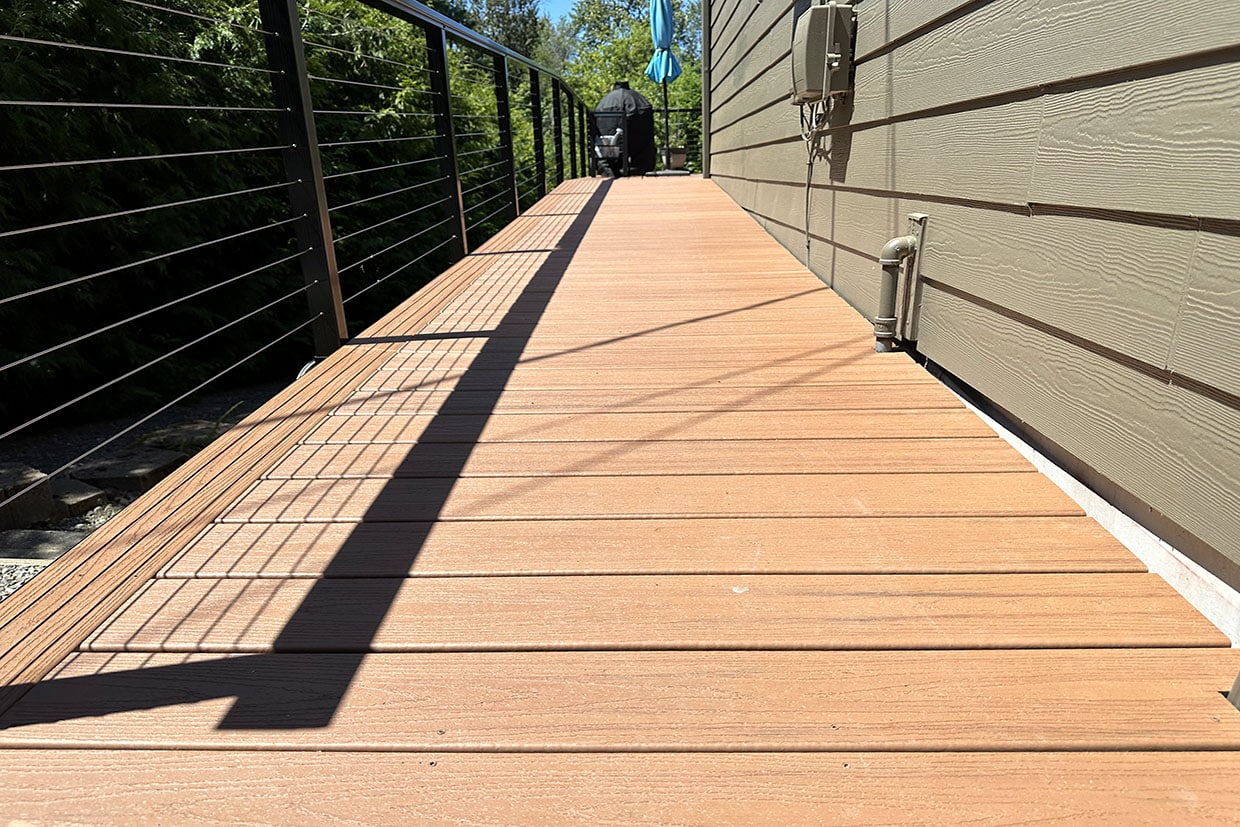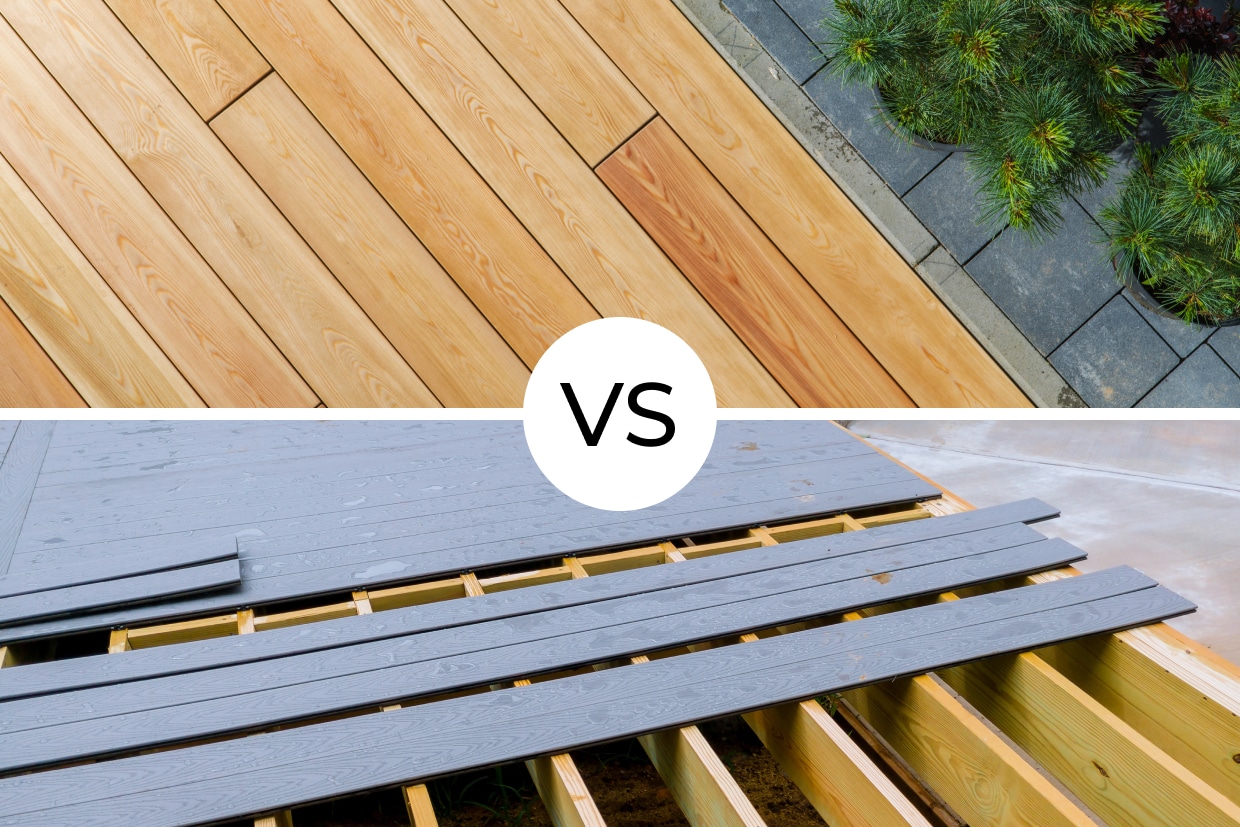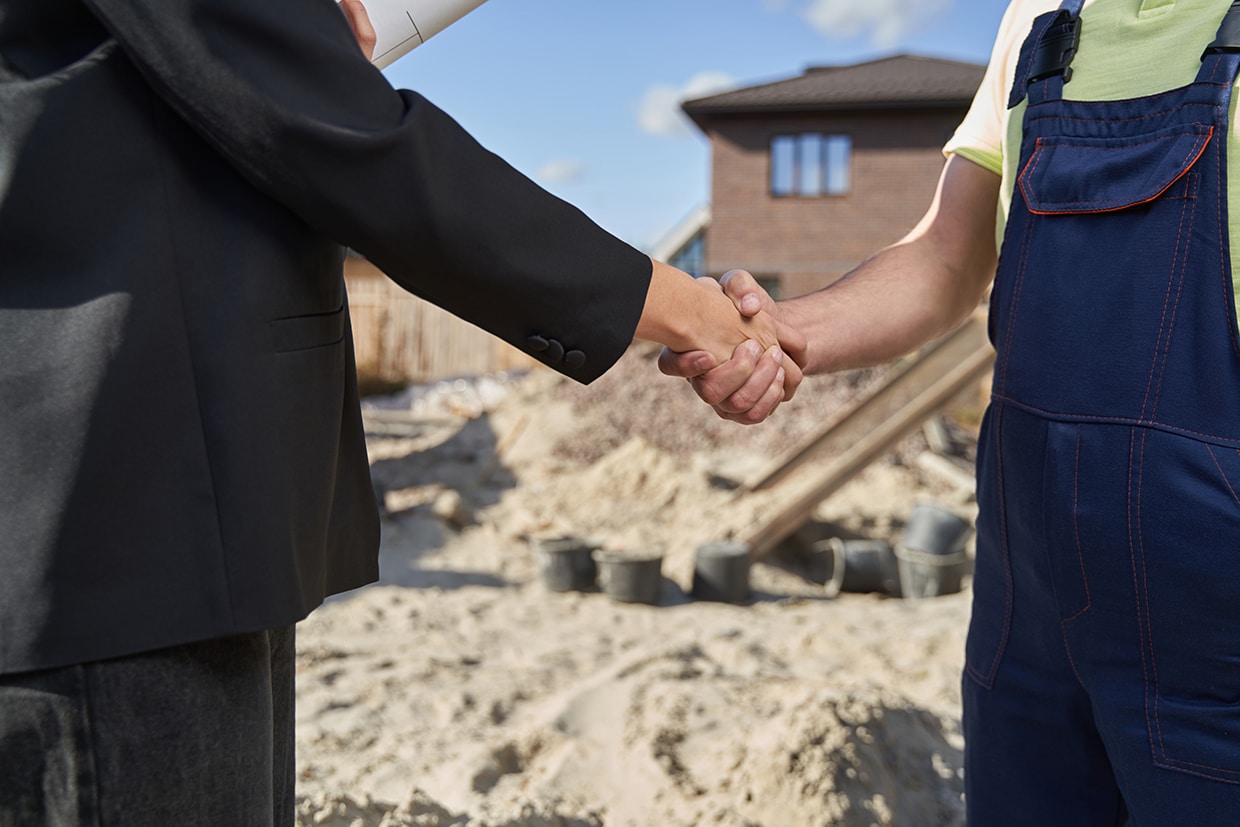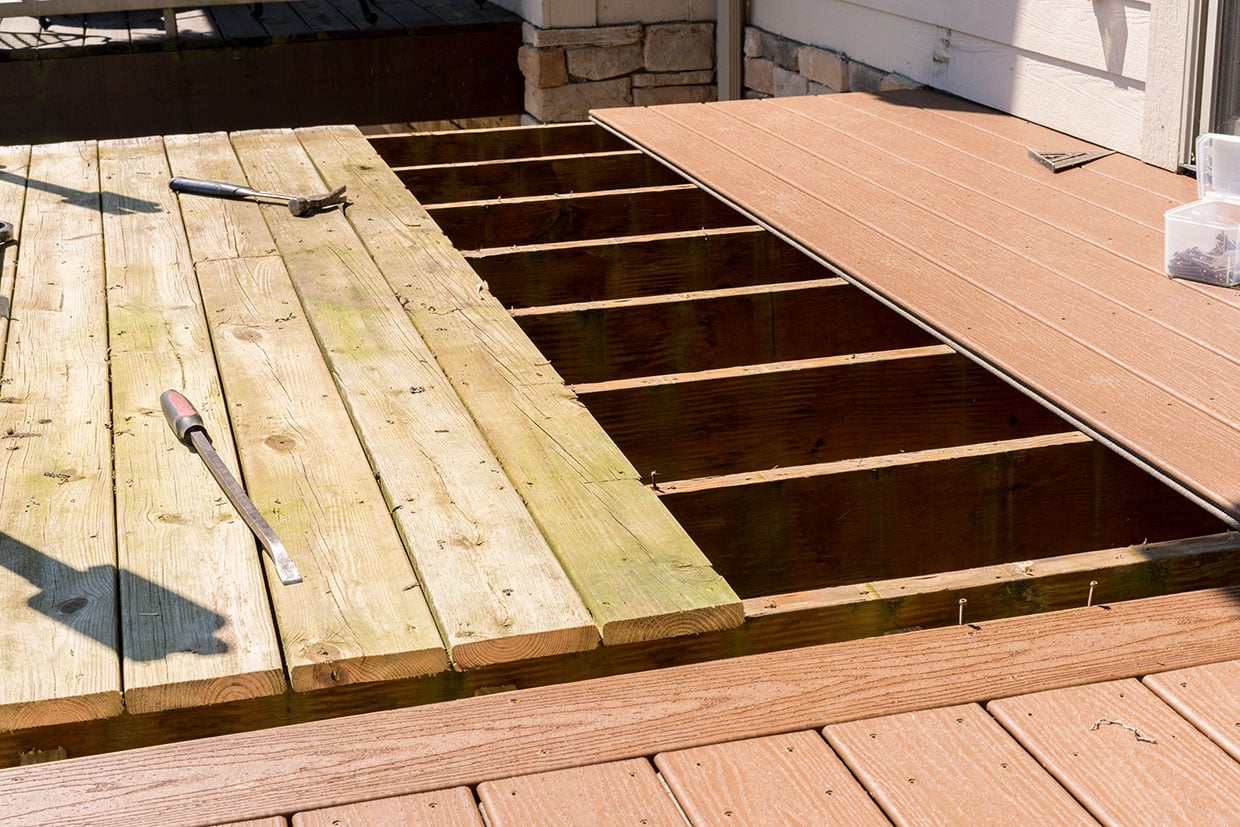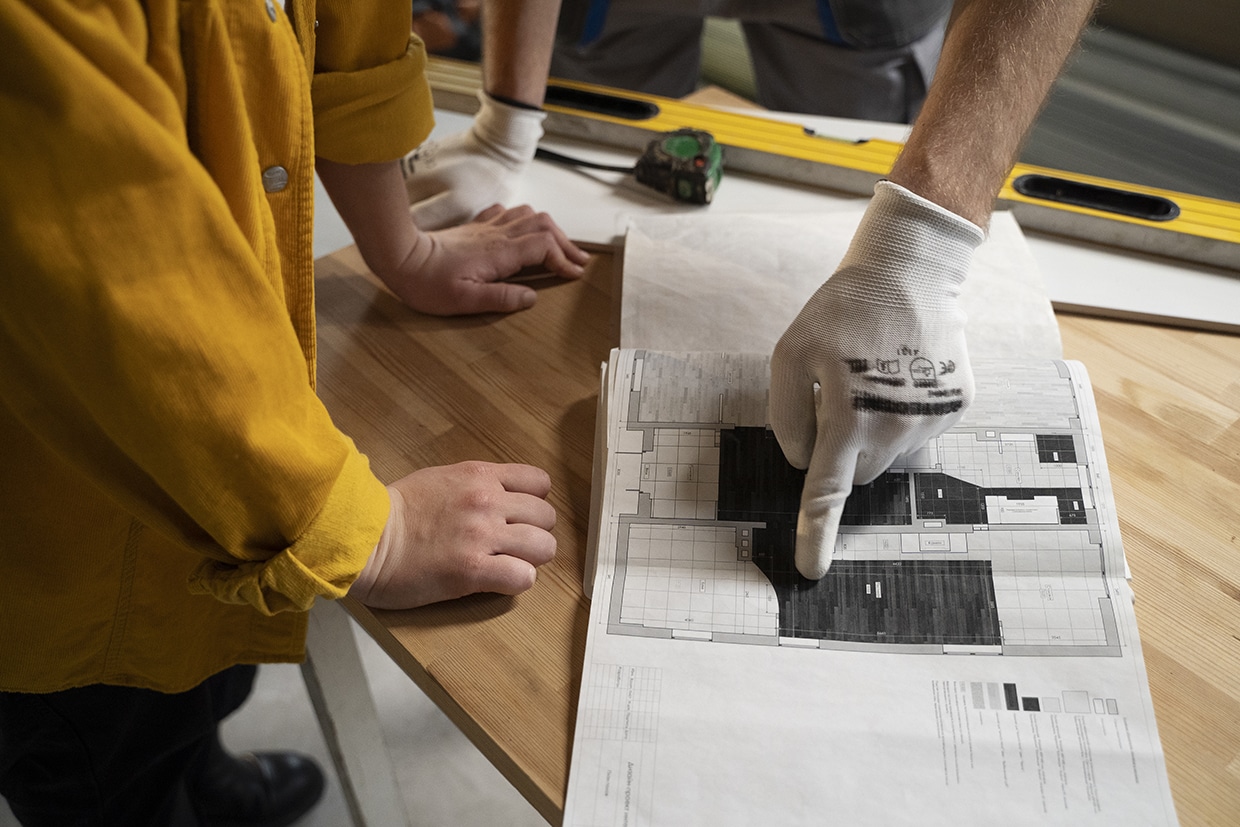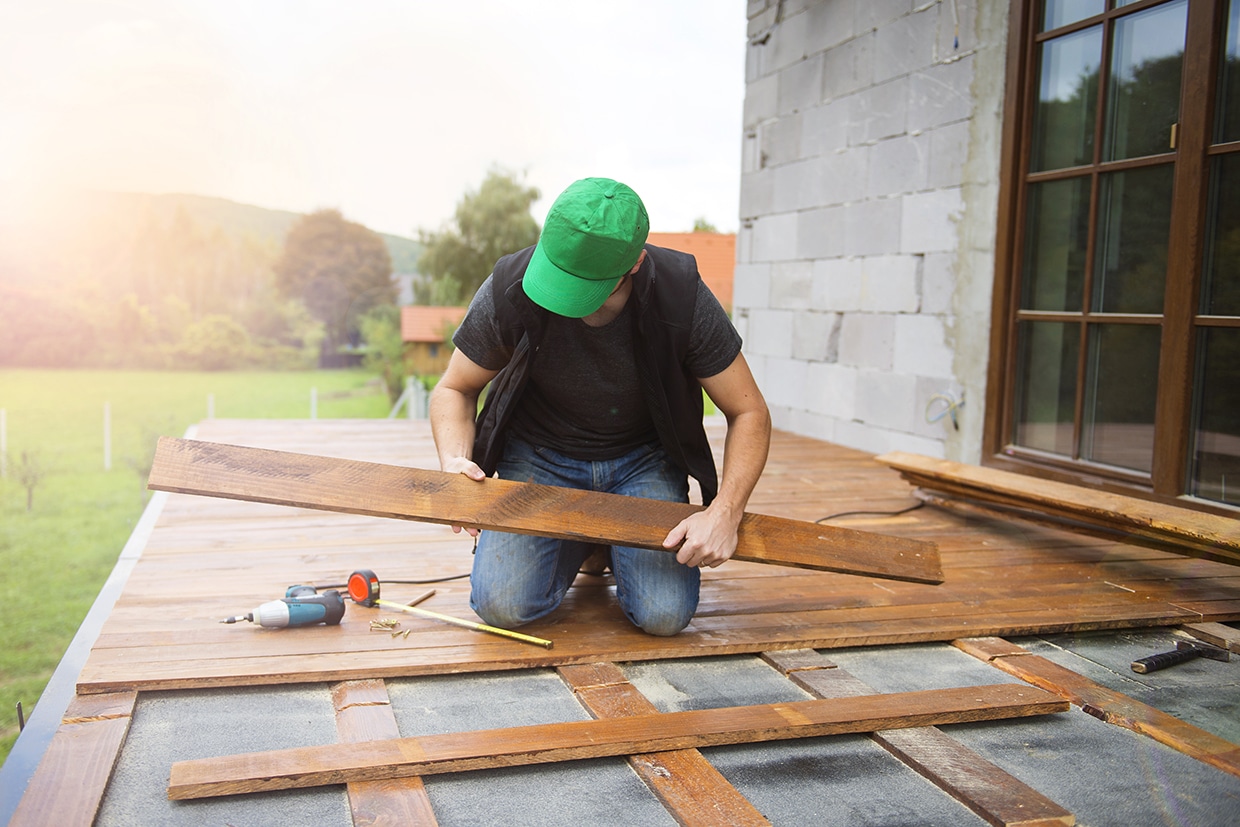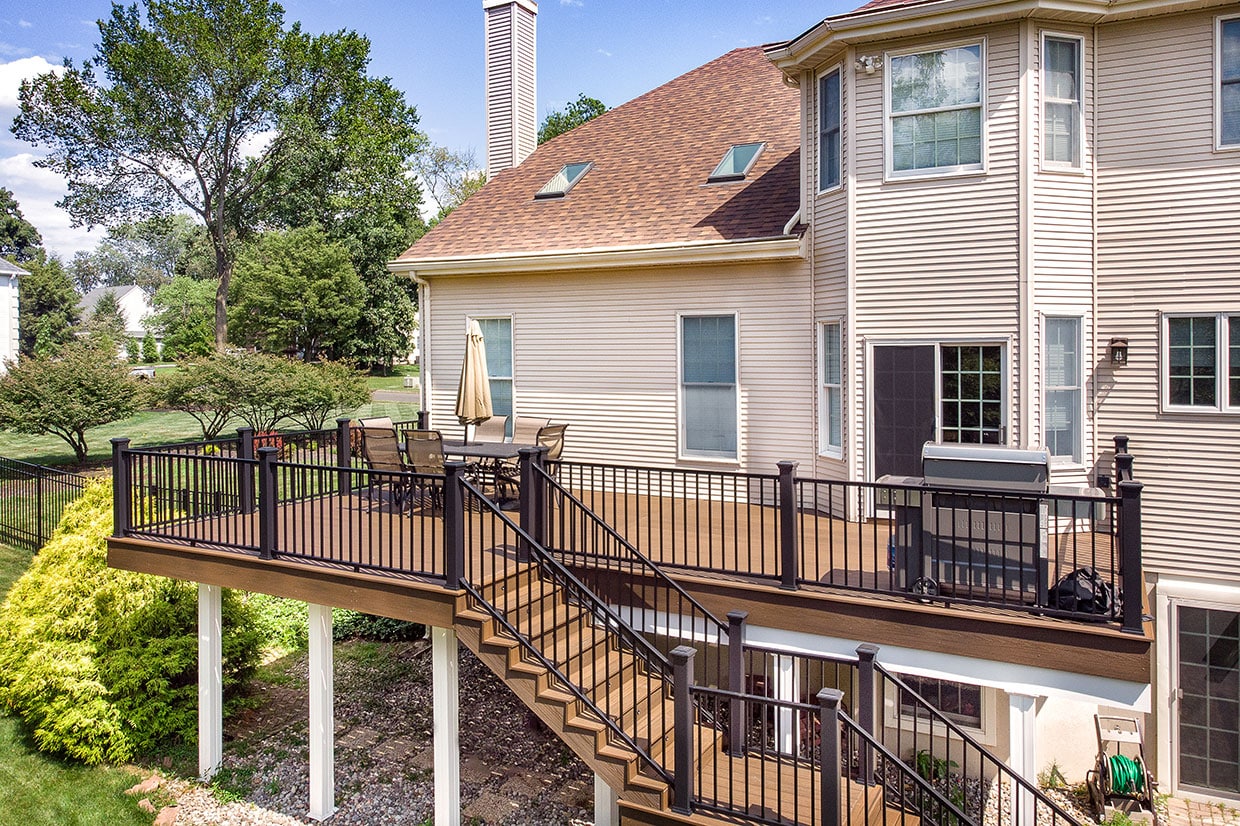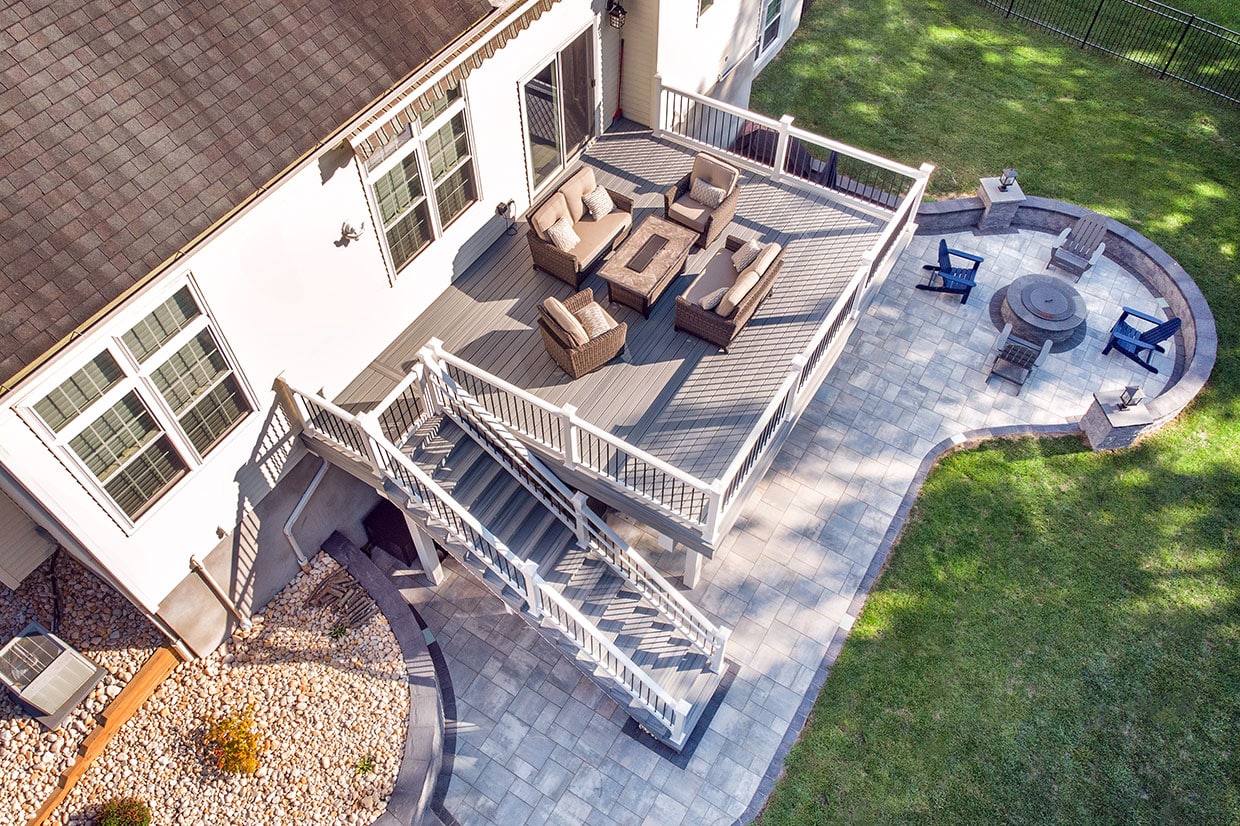For many homeowners, a deck is more than just an extension of their living space. It’s where mornings are greeted with a soothing cup of coffee, where sunsets become the backdrop for cherished dinners with friends, and where starlit nights pave the way for intimate moments with loved ones. Such treasured experiences deserve a deck built to withstand the test of time and weather. Read on to learn more about how to choose the best decking material for your climate.
Olympic Decks
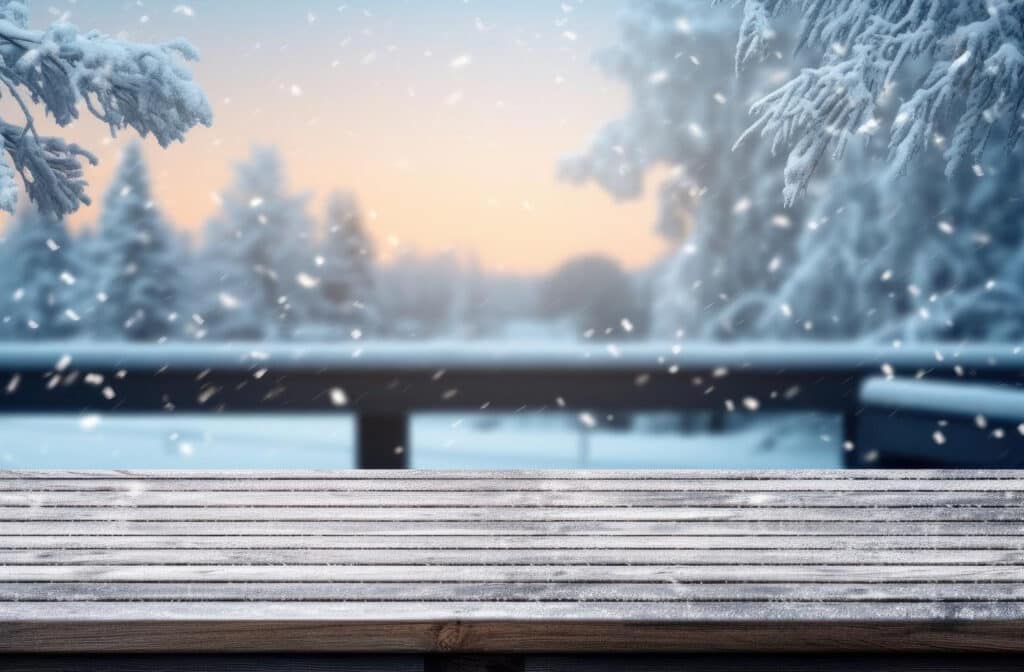
The Role of Climate in Decking Choices
When it comes to choosing the perfect decking material for your home, several factors come into play. Aesthetics, budget, and durability are just a few considerations homeowners ponder.
The experts at Olympic Decks want you to know there is one crucial element that should never be overlooked- the climate in which you live. The weather conditions of your region can greatly impact the lifespan and performance of your deck.
Why Climate Matters When Choosing Decking Material
- Durability and Longevity: The main reason homeowners invest in a deck is to enjoy outdoor living. However, if the material isn’t suited to the local climate, the deck could deteriorate quickly, meaning more frequent repairs or even a total replacement much sooner than anticipated, potentially costing thousands of dollars.
- Maintenance Requirements: Some decking materials may require more maintenance in certain climates. For instance, a deck that’s perfect for a dry climate might demand extensive upkeep in a rainy environment.
- Comfort: Especially in areas with high temperatures, the heat retention of decking materials can be a concern. A deck that becomes too hot to walk on defeats its purpose.
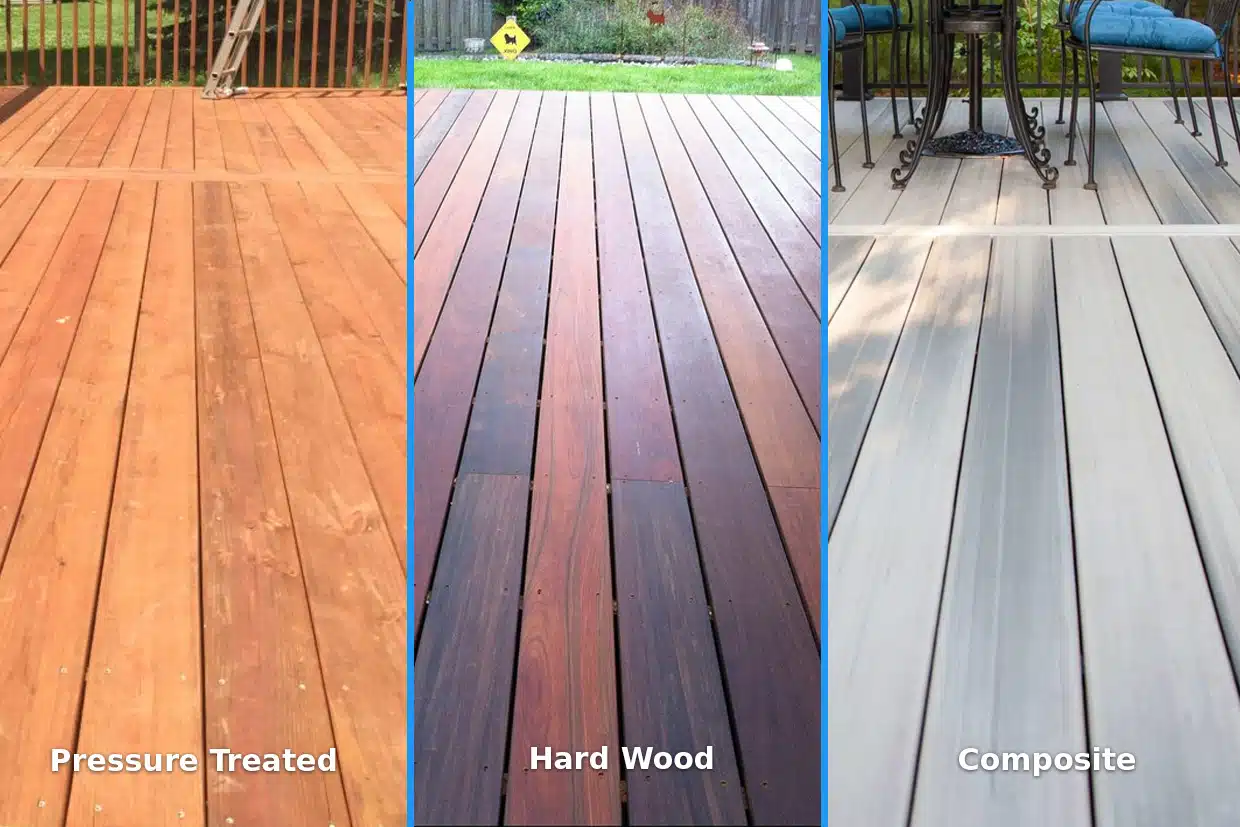
Common Decking Materials: An Overview
Working in the Seattle area, Olympic Decks know that the foundation of a deck lies not just in its construction but also in the choice of materials. While various materials are available in the market, some stand out due to their durability, aesthetics, and adaptability to different climates. Let’s delve into the world of wood, composite, and vinyl decking and discern which might be the best fit for your needs.
Wood Decking in Different Climates
Wood, often considered the classic choice for decking, has been utilized for this purpose for centuries. Each type of wood possesses its own set of characteristics, giving homeowners a range of options to choose from.
Types of Wood and Their Characteristics:
- Cedar: A favorite among many, cedar is naturally resistant to rot and insects. It boasts a rich color that can add warmth to any deck design.
- Redwood: Similarly to cedar, redwood offers natural resistance to decay and pests. With its vibrant hue, it can lend an elegant touch to outdoor spaces.
- Pressure-Treated Pine: This is a more budget-friendly option. Pine wood is treated to resist decay, fungi, and termites. Though it lacks the natural elegance of cedar or redwood, it makes up for it in affordability and resistance.
- Tropical Hardwoods (like Ipe and Teak): These woods are incredibly dense and durable. Their tight grain makes them resistant to water infiltration, and they often display rich, exotic colors.
How Wood Fares in Various Climates: Benefits and Challenges:
- Wet and Rainy Climates (like Seattle): Woods like cedar and redwood have natural oils that make them somewhat resistant to moisture. However, regular sealing is advisable to prevent water damage. Pressure-treated pine, due to its treatment, can also hold up well. Tropical hardwoods, with their dense nature, resist moisture exceptionally well but can be more expensive.
- Dry and Hot Climates: Woods can crack and warp under intense sun. A regular application of UV-protectant finishes can help. Tropical hardwoods, given their density, might fare better but will also benefit from UV protection.
- Fluctuating Temperatures: Wood can expand and contract with temperature fluctuations. This can lead to warping or cracking if not properly maintained. Regular sealing and finishing can help mitigate these effects.
At Olympic Decks, we understand the nuances of different decking materials and their reactions to diverse climates. Whether you’re inclined towards the timeless beauty of wood, the resilience of composite, or the low maintenance of vinyl, our team is here to guide you in making an informed decision, ensuring your deck stands strong and beautiful through the seasons.
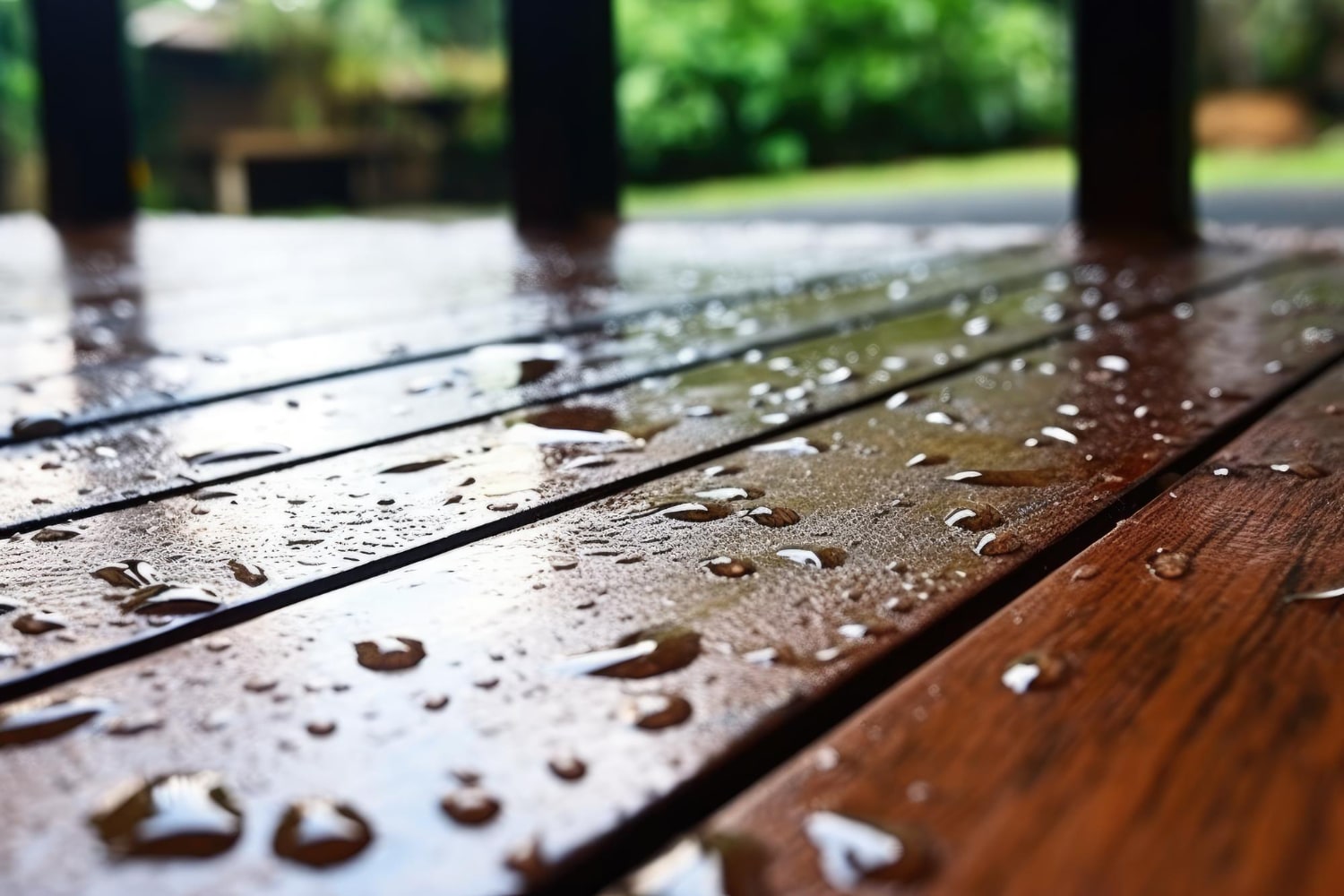
Composite Decking in Different Climates
Composite decking, a blend of wood fibers and plastic polymers, has emerged as a popular choice for many homeowners in recent years. Offering a balance of durability and aesthetic appeal, composite decks provide several advantages over their traditional wood counterparts. Let’s journey through the composition, features, and performance of composite decking across diverse climates.
Composition and Features of Composite Decking:
Composition: Composite decking is typically made from a mix of recycled wood fibers, plastic (often recycled plastic), and a binding agent. This blend results in a material that combines the best of both worlds: the natural appearance of wood and the resilience of plastic.
Features:
- Durability: Composite decks are designed to last, showing resistance to rot, decay, and insect infestation.
- Low Maintenance: Unlike traditional wood, composites don’t require frequent staining or sealing. An occasional cleaning suffices to keep the deck in top shape.
- Eco-Friendly: Many composite decks are made from recycled materials, making them a greener choice for eco-conscious homeowners.
- Uniformity: Composite decks offer consistency in appearance, without the knots or imperfections found in natural wood.
Performance of Composite Decks in Various Climatic Conditions:
- Wet and Rainy Climates: The plastic content in composite decking provides significant resistance to moisture. As a result, these decks are less prone to mold and mildew growth compared to pure wood. However, it’s essential to ensure proper drainage to prevent water pooling.
- Dry and Hot Climates: While composite decks resist warping and cracking better than wood in intense heat, they might retain more heat, making them warm to the touch. Lighter colored composites tend to fare better in such conditions as they reflect more sunlight.
- Fluctuating Temperatures: Composites are engineered for stability. Therefore, they show reduced expansion and contraction in response to temperature changes, ensuring a longer-lasting and stable deck.
- Snowy and Cold Climates: Composite decks handle snow quite well. Snow can be easily brushed off, and if ice forms, it can be removed using calcium chloride or rock salt without damaging the deck.
At Olympic Decks, we pride ourselves on our deep understanding of decking materials. With the unique combination of aesthetic appeal and durability that composite decks offer, it’s no surprise that they have grown in popularity. Our team is always on hand to provide insights and expertise, ensuring that your decking choice aligns perfectly with your climatic challenges and aesthetic preferences.

Sustainable Decking Choices With Olympic Decks
In today’s world, where the impact of human activity on the environment is increasingly evident, the emphasis on sustainable and eco-friendly choices in all sectors has never been more crucial. This includes the realm of decking.
Olympic Decks believes that selecting environmentally responsible decking materials not only contributes to the health of our planet but can also result in long-lasting and aesthetically pleasing outcomes for homeowners. Dive in to understand the importance of choosing sustainable decking materials and the options available in the market.
The Importance of Choosing Environmentally Friendly Decking Materials:
- Ecological Impact: Unsustainable logging can lead to deforestation, threatening biodiversity and contributing to global climate change. Choosing sustainable wood sources helps conserve forests and their invaluable ecosystems.
- Reduced Carbon Footprint: Sustainable decking materials often have a lower carbon footprint, as they can be sourced, manufactured, and recycled using energy-efficient methods.
- Health and Safety: Eco-friendly decking materials tend to have fewer chemicals and harmful treatments, ensuring a safer environment for families to enjoy.
- Economic Benefits: As demand grows for sustainable products, their production scales up, often reducing costs. Furthermore, eco-friendly decks tend to require less maintenance, translating to long-term savings.
Sustainable Options Available on the market:
- FSC Certified Wood: The Forest Stewardship Council (FSC) certification ensures that the wood has been harvested sustainably, maintaining the ecological processes, biodiversity, and productivity of the forest. Options like FSC certified cedar or redwood are excellent choices.
- Composite Decking: Many composite decking brands (Trex, Timbertech, or Deckorators) offer products made from recycled wood fibers and plastics. These materials reduce waste in landfills and lower the demand for virgin timber.
- Bamboo: Rapidly renewable, bamboo grows much faster than traditional timber. When harvested responsibly, bamboo can be an incredibly sustainable decking material.
- Recycled Plastic Lumber: Made entirely from recycled plastic, this material doesn’t rot, warp, or require painting. It repurposes plastic waste, giving it a new life as a durable decking material.
- Reclaimed Wood: Reclaimed or salvaged wood comes from old barns, warehouses, or other structures. Using this wood reduces the demand for new timber and adds a touch of history and character to your deck.
Embracing sustainable decking choices is a step towards a greener and more responsible future. These eco-friendly options not only preserve the beauty of our natural world but also deliver on performance, durability, and aesthetics. At Olympic Decks, we champion sustainability, and our team is here to guide you in making a decking choice that aligns with both your environmental values and your home’s needs.
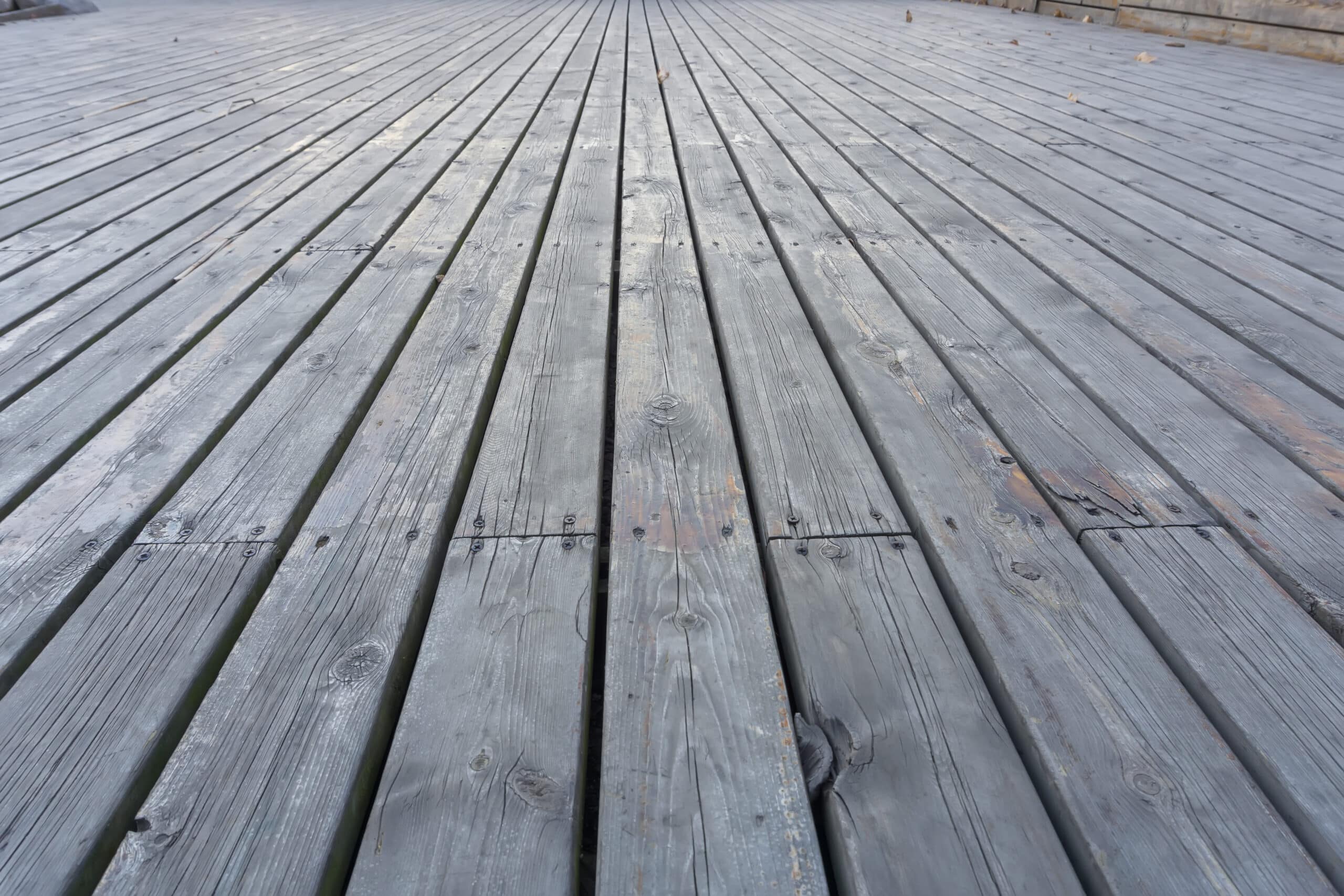
Deck Maintenance Tips Based on Climate
No matter the material, a deck requires care and attention to keep it looking and functioning at its best. The maintenance routine often varies based on the climatic conditions your deck is exposed to. From the freezing winters to the scorching summers, different weather conditions pose unique challenges. Here’s a comprehensive guide on how to care for your deck in various climates, alongside prevention and treatment solutions for common climate-induced issues.
How to Care for Your Deck in Various Weather Conditions:
Wet and Rainy Climates:
- Regular Cleaning: Ensure your deck is free from puddles and standing water. Use a squeegee or soft broom to clear out water and prevent mold growth and staining.
- Sealing: Apply a water-resistant sealant to your deck. This will repel water and protect the wood or composite from moisture damage.
- Check Drainage: Ensure the area around your deck has proper drainage to prevent water accumulation.
Dry and Hot Climates:
- UV Protection: If your deck is made of wood, consider applying a UV-protective finish to prevent fading and sun damage.
- Regular Cleaning: Dust and sand can be abrasive. Regularly sweep the deck to prevent scratching the surface.
- Shade Solutions: Consider installing pergolas, awnings, or shade sails to reduce direct sun exposure.
Snowy and Cold Climates:
- Snow Removal: Use a plastic shovel to clear snow off the deck. Metal shovels can scratch the surface.
- Avoid Salt: If using de-icers, avoid rock salt on wood or composite decks as it can be corrosive. Opt for calcium chloride-based products.
- Seal Against Moisture: Before winter hits, ensure your deck has a protective seal to prevent moisture infiltration that can lead to freeze-thaw damage.
Fluctuating Temperatures:
- Regular Inspection: Continually monitor for signs of cracking, warping, or loosening boards. Address issues promptly to prevent further damage.
- Flexible Sealants: Use sealants and finishes that can expand and contract with the wood to ensure consistent protection.
Prevention and Treatment Methods for Common Climate-Induced Issues:
- Mold and Mildew: Ensure proper ventilation around the deck, use mold-resistant sealants, and clean your deck with a mildew remover or a solution of water and bleach.
- Wood Rot: Ensure the wood is properly sealed against moisture. If rot is detected, replace the affected boards and treat the surrounding area to prevent the spread.
- Cracking and Splitting: Apply sealants and stains that penetrate the wood, providing protection from the inside out. Sand down minor cracks and seal promptly.
- Fading: Use finishes and stains with UV protection to maintain the color of your deck. For composite decks, choose materials with built-in UV inhibitors.
Ensuring your deck remains in peak condition requires a combination of regular maintenance and understanding the specific challenges posed by your region’s climate. With the right care and timely interventions, you can prolong the life of your deck, ensuring it remains a cherished space for relaxation and gatherings for years to come.
A deck is a big investment, and its longevity largely depends on the care it receives. At Olympic Decks, we’re always here to offer expert advice and solutions tailored to your decking needs.
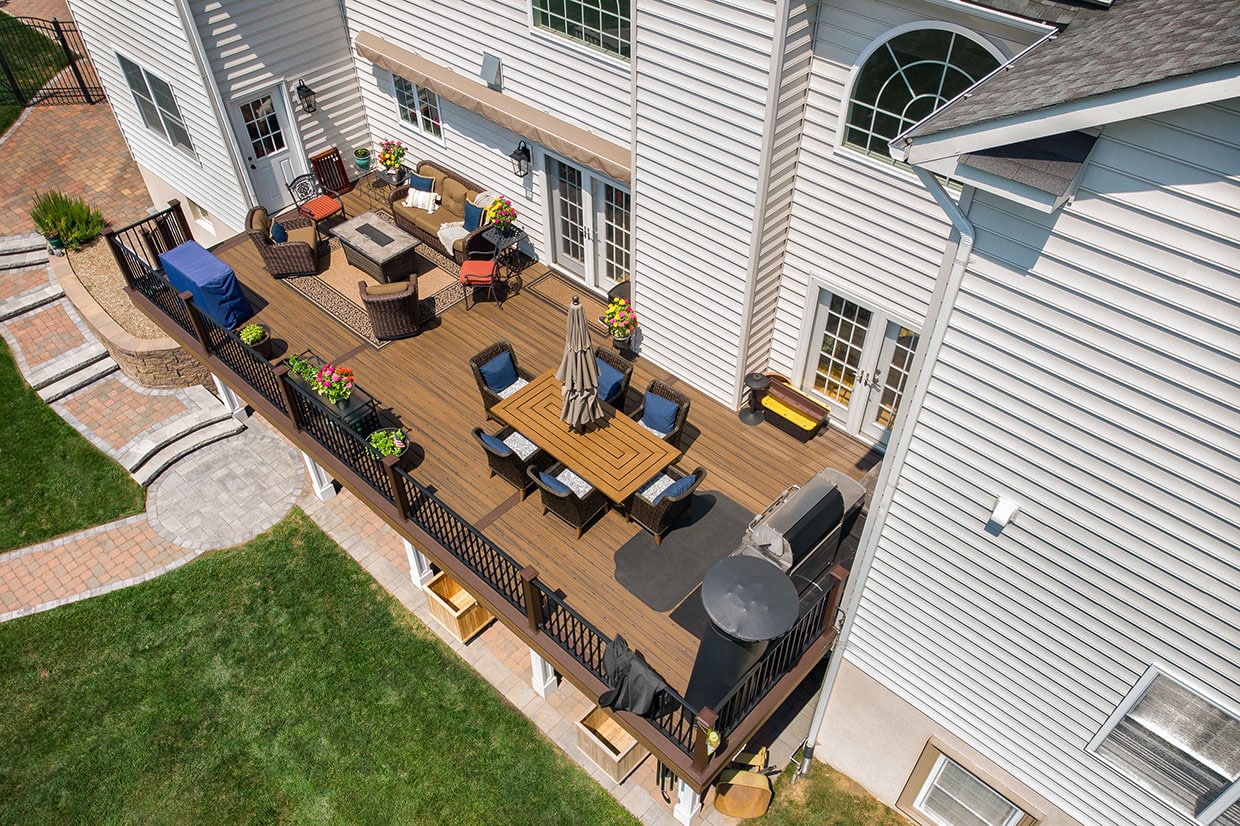
Choose Olympic Decks For The Best Decking Material for Your Climate
In the vast world of decking, climate isn’t just another variable—it’s a defining factor. From the materials we choose to the maintenance routines we establish, the whims of weather and shifts of seasons play a pivotal role.
While aesthetics and budget are undeniably vital, it’s the synergy of these elements with climatic conditions that ensures the true longevity and enjoyment of a deck. Remember, a deck that isn’t in harmony with its environment will be constantly battling against it. For tailored advice and insights that consider every nuance of your area, professionals like Olympic Decks stand ready to guide you to make informed decisions. Contact us today!

